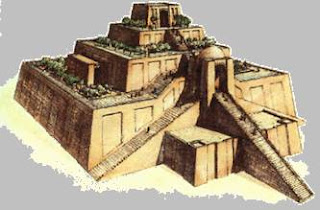Ancient Stove-makers, Stokers, and Glass-makers
On clay tablets
found between the Tigris and the Euphrates, the arrangement of ancient
glass-making furnaces was described. It was told when and how to collect fuel
for the furnace, where to dry and store it, how the master should behave in
those days when the furnace is being built, and also during glass melting.
 |
| Ziggurat |
The entry on the
plate read: Remember! It is necessary to lay the foundation of the melting
furnace in a certain month of the year, otherwise, the gods will not help you.
While the furnace is being built and when it is ready, make sure that no
stranger crosses the threshold of your workshop, otherwise, the gods will turn
their backs on you. And on the day of the stove’s kindling, everyone who works
near it should wash well, put on clean clothes and made a sacrifice to the
gods.
It was further
told that the furnace must be heated for seven days.
Clay vessels
were pre-filled with sand, lime, soda and various impurities that gave color to
the glass. Then these vessels were mounted on flat stones, and fire was kindled
under them. But the temperature was not enough to immediately produce glass.
And the master patiently waited until the mixture was heated, softened, and its
components sintered together. It took seven days.
 |
| Ancient Babylonians |
Then the master
removed his dish from the fire and waited again for the sintered mass to cool.
When cooling, it inevitably cracked. But this was advantageous for the master:
he carefully examined each piece and selected those that were better boiled. Putting
them in another clean bowl, he set it on fire and waited again. A lot of time
passed, the mixture in a closed vessel swelled up, released gases, hissed and
gradually changed its color.
These days the
master was especially worried. The most crucial moment of work has come - the
formation of glass. But how were glass things made of glass? The master did not
report this. Obviously, as soon as the glass seemed ready to the master, he was
transformed from a slow observer into a person as fast and mobile as the wind.
After
all, it was impossible to procrastinate! He was in a hurry to work until the
glass had cooled.